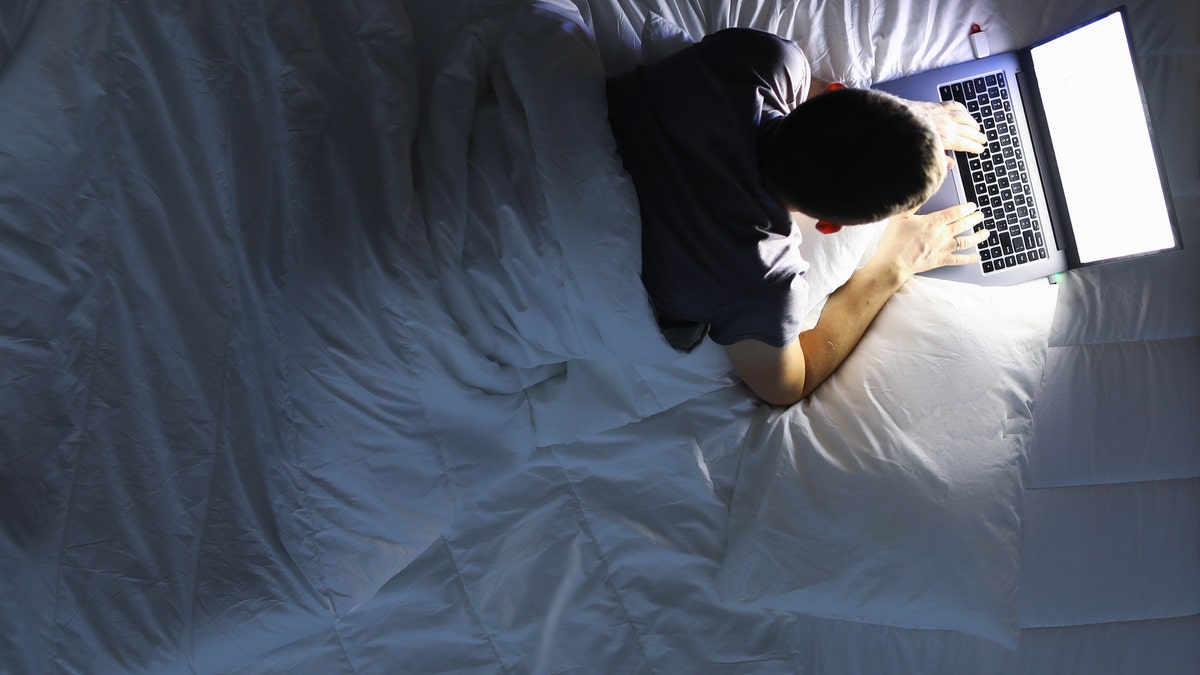Poor sperm quality has been linked to using electronic media at night, according to new research released by the American Academy of Sleep Medicine.
“Smartphone and tablet use in the evening and after bedtime was correlated with decline in sperm quality. Furthermore, smartphone use in the evening, tablet use after bedtime, and television use in the evening were all correlated with the decline of sperm concentration," said principal investigator Amit Green, Ph.D., in a press release.
MAN LOSES PENIS TO INFECTION, DOCTOR BUILDS NEW ONE ON ARM

Preliminary results published as an abstract in the journal Sleep showed that men who reported more use of light-emitting devices including tablets and smartphones at night and after bedtime had a lower concentration of sperm, lower motility, and progressive sperm motility. (iStock)
The preliminary results published as an abstract in the journal Sleep showed that men who reported more use of light-emitting devices, including tablets and smartphones, at night and after bedtime had a lower concentration of sperm, lower motility, and progressive sperm motility – which researchers explained as the ability of the sperm to “swim." The men also had a higher percentage of immotile sperm that are unable to swim, the researchers stated in the study.
"To the best of our knowledge, this is the first study to report these types of correlations between sperm quality and exposure time to short-wavelength light emitted from digital media, especially smartphones and tablets, in the evening and after bedtime,” stated Green, who is also the head of research and development at the Sleep and Fatigue Institute at the Assuta Medical Center in Tel-Aviv, Israel.
ERECTILE DYSFUNCTION DRUGS MAY HELP REDUCE EARLY DEATH FROM COLON CANCER, STUDY FINDS
The team of researchers collected samples from 116 male participants between 21 and 59 years old undergoing fertility assessments. The participants answered questionnaires about their use of electronic devices and sleep habits. Besides the correlation of the poor sperm quality and use of electronic devices at night, the team of researchers also reported in the study a link between sleep and sperm quality. The researchers stated in the release that the participants who slept longer had higher sperm count and greater progressive motility. Meanwhile, the men who reported feeling greater sleepiness were found to have a poorer quality of sperm.
Over the past few decades, there has been a decline in male fertility, the researchers said in the study. During that same time period, there has also been widespread use of digital devices, they noted.








































